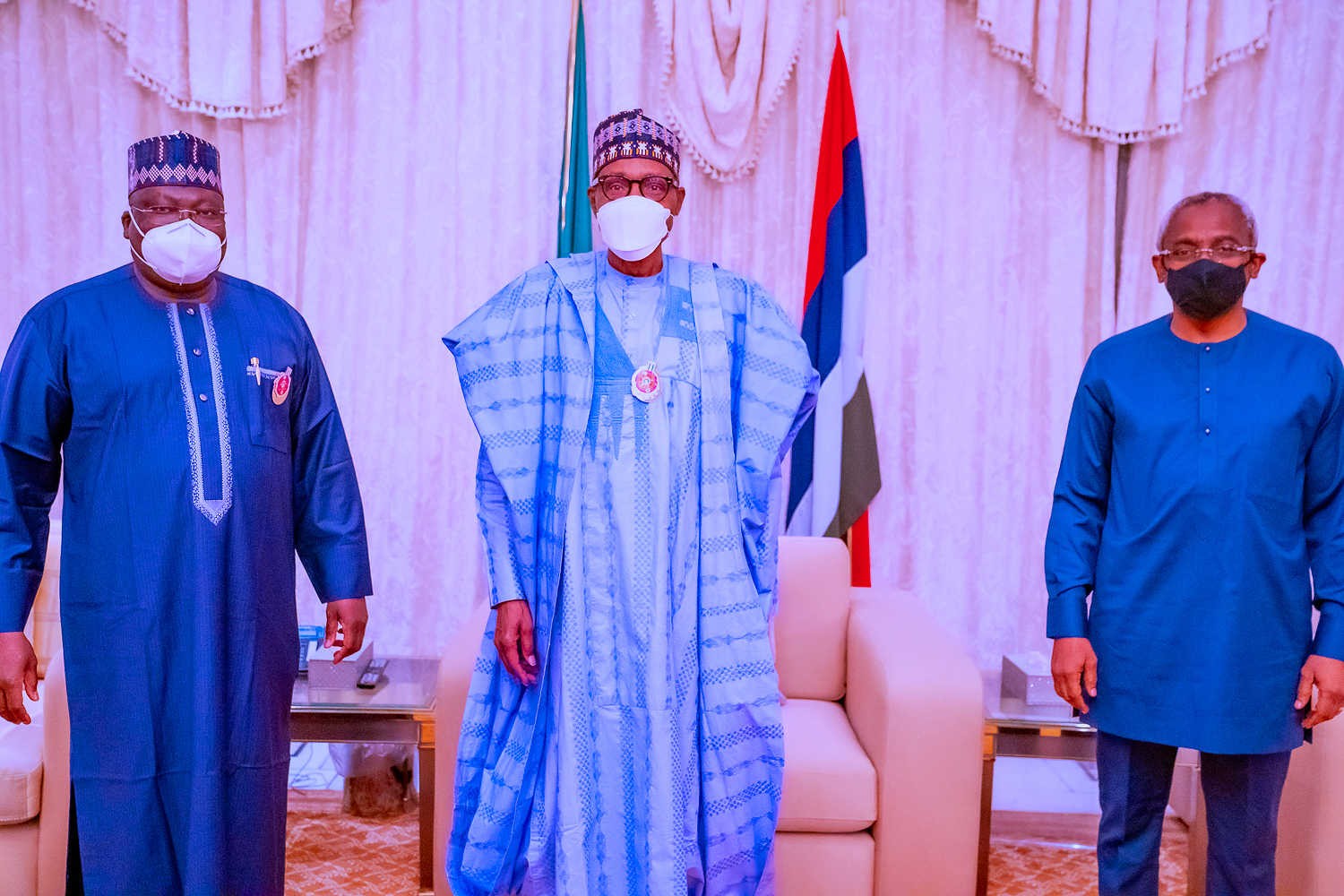Editorial
2022: Making Nigeria Work

For many Nigerians, 2021, which ends today with a bleat, was especially dreary. In all regards, par
ticularly in health, security, agriculture, education, social life and the economy, 2021 exacted more despondency on the people than the brief moments of abatement it gave. Nigeria was bedevilled by insecurity and Coronavirus while its economy plummeted. Indeed, the year would be commemorated for all the vicious scourge it brought on the country.
Confusion inundated the atmosphere after the eruption of the COVID-19 pandemic in China showed frantically across the world. The pandemic hit Nigeria on February 27, 2020, the index case infiltrating into a vulnerable country from Italy. As of December 31, 2020, Nigeria had listed 86,575 positive cases with 1,278 deaths. These figures tell only a part of the story, as the pandemic had uncovered the declension in the health system.
Many ailing people died from their maladies. The affluent, addicted to overseas medical expeditions, were restricted to the country by global travel prohibitions. In 2021, the second, third, and fourth waves of the pandemic tested the riven health system to the limit. The Nigeria Centre for Disease Control (NCDC) informed of the jeopardy ahead, regretting that Nigerians had conciliated the non-pharmaceutical formalities successful in controlling the baneful disease.
Nigerians witnessed untold suffering following the economic lockdown that characterised the pandemic in 2020. Oil prices slumped catastrophically from low consumer demand, selling for $12.22 per barrel. This inflamed economic turbulence. Enormous job losses eventuated, with the unemployment rate escalating to 27.1 per cent from 23.1 per cent in the third quarter of 2018.
The National Bureau of Statistics (NBS) said 21.7 million persons were out of jobs; 13.9 million of them were youths. Underemployment hit 28.6 per cent for an amalgamated 55.7 per cent jobless rate. Aviation, transport, manufacturing, the hospitality industry and the financial sectors were the toughest hit. Unlike elsewhere where governments spiralled a slew of palliatives for the citizens, trifling measures were apportioned, as usual, by the predatory ruling elite.
The hardship could have been fended off or at least mollified with the right leadership. With President Muhammadu Buhari’s incongruous response, the economy recorded a second recession in five years in Q3 of 2020. In Q2, GDP declined by 6.10 per cent. By Q3, it slid further by 3.62 per cent, giving rise to recession. On the back of condensed production, inflation rose astronomically.
Foreign exchange rates increased pointedly. The Nigerian currency was exchanged for N500 per dollar in the parallel market, notwithstanding the billions the Central Bank of Nigeria injected to defend the national currency. At a point, it was compelled to vary its policy by granting Diaspora remittances to be withdrawn in the currencies they were sent home.
To get by, the administration resorted to the deregulation of imported fuel prices, but it was still unable to collect trillions of naira in taxes. The federal and state governments owed a backlog of salaries, pensions and gratuities. Debts, with little or nothing to show for them, keep going up. Nigeria’s current debt burden stood at N35.47 trillion as at the second quarter of 2021.
Indeed, the exiting year has been very turbulent. The challenges have remained the same — worsening economic condition, a heated polity, a disunited heterogeneous country, a hugely corrupt public, weak democratic institutions, insecurity, wobbling health sector, decayed education system, collapsed infrastructure, soaring unemployment, and a unitary system masquerading as federalism, among others.
Therefore, 2022 is a year of greater expectations. Nigerians hope to see their country bounce back again. They anxiously yearn for a turn-around across the sectors. To accomplish the collective goal, they must embrace governance as a joint enterprise involving the active participation and cooperation of those in the corridor of power and the citizenry.
Government must resolve to govern well while Nigerians must also determine to be good citizens. There should be no shortage of patriotism. This should be the summary of the combined New Year resolutions that are meaningful and result-driven. If government and citizens make and abide by these resolutions, all will largely be well with the country in the coming year.
In 2022, governments at the federal and state levels should demonstrate commitment towards the strategic and effective execution of their budgets, which are vital to the national economic sustainability and recovery from stagnation. Projects execution should generate employment, support the drive for investment and boost public welfare.
On the political front, the National Assembly should resolve to speed up the constitution amendment. If the review does not dismantle certain elements of ‘unitarism,’ the effort will be in vain. The two main political parties should put their houses in order and promote greater inclusion and internal democracy. Their crisis resolution mechanisms should be fortified as they prepare for congresses and conventions. Political gladiators should refrain from heating the polity ahead of 2023.
There should be a new resolution on the economy. The Nigerian economy, according to experts, has prospects, which gives the hope of a brighter future, if the required reforms are embarked upon. But, the current picture is awful and scary. Poverty is growing by leaps and bounds. Many are hungry and angry. Industrialists are in pain over the cost of production. Insecurity, epileptic power supply and the growing perception of Nigeria as a bastion of corruption are discouraging to investors.
However, after more than six years in the saddle, it is obvious Buhari is not in control and his regime lacks the basic ideas and courage to change Nigeria. At a time when the country requires decisive leadership and the President’s close aides seek power for its sake, it is a dire time to be a Nigerian. The option for a better future lies with everyone. Therefore, in 2022, Nigerians should take their destinies into their hands to make the country work again.
Editorial
Beginning A New Dawn At RSNC

Editorial
Sustaining OBALGA’s Ban On Street Trading

Editorial
AFCON ’25: Bravo, Super Eagles, But…




